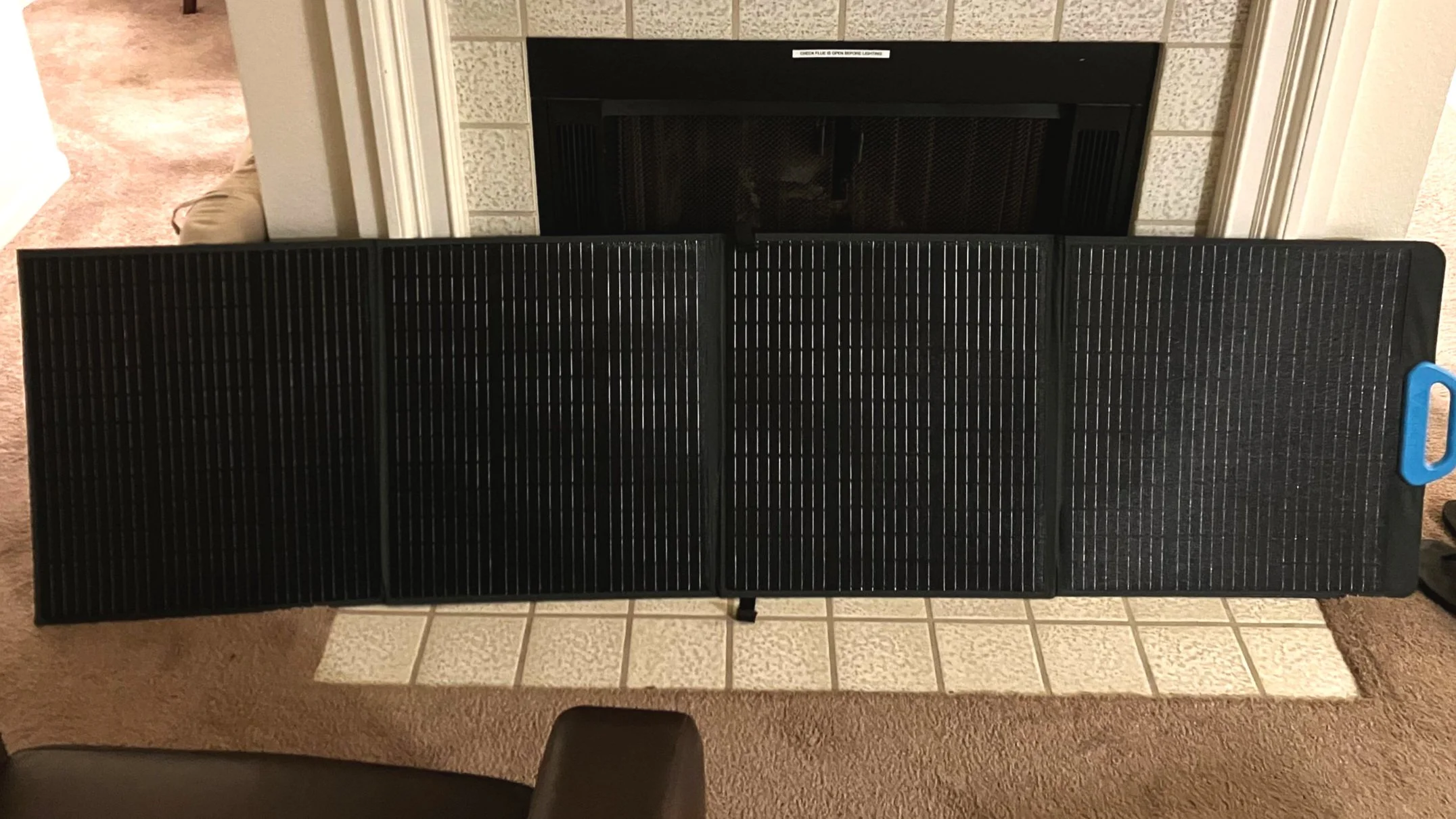Getting Real About the Limitations of Electricity
By Edward A. Sanchez — Jan. 24, 2023
Before you think I’m coming out as a ringer apologist for big oil, I think some context is important. The recent winter storms in California put me in a bit of a “prepper” mode, purchasing a battery power station, a dual-fuel stove burner, and other provisions and preparations for a prolonged power outage, or disruption in normal utilities and services.
Although I do have gas appliances in my home in the form of central heating, a water heater, clothes dryer, and a gas fireplace, my stove and oven are electric. In the case of a prolonged power outage, I don’t have an easy way to heat water. I do have a small propane outdoor grill and a propane firepit, but neither are optimized for pan cooking or boiling water.
Purchasing my Bluetti EB70S power station, I quickly became aware of its limitations. By no means do I want to disparage the company or its products. It meets its intended mission perfectly – to keep personal electronics charged and powered, so I can stay in touch and online in the event of a prolonged power outage. As an extra measure of precaution, I bought the accompanying accessory solar panels to go along with it, in case of a really prolonged power outage.



This small battery power station powered my laptops (both of them) without breaking a sweat, including my auxiliary monitor. However, it could not handle my laser printer. I found out the printer has a peak power draw of 1,104 watts, beyond the 800 watt rating of the EB70S. As soon as I plugged the printer in, I quickly got an “overload” warning.
On-paper, the power station was capable of powering my 650-watt coffeemaker. Out of curiosity I made my coffee this morning with the EB70S. Sure enough, the coffeemaker percolated happily, and made me my quotidian “Cup of Joe.” But it should be noted this is the first time the power station’s fan kicked on. Powering laptops, cell phones, and other assorted accessories, the Bluetti is usually silent. Not this time.
I knew before even attempting that the EB70S would not be capable of powering my hot water kettle, toaster oven, or microwave. In general, it seems like resistive heating is the least efficient use of electricity. This post on EnergyVanguard.com backs up my hypothesis. Assuming the electricity to power certain resistive heat appliances comes from natural gas or coal-fired power generation, the source-to-outlet efficiency rate is a dismal 30%. Even with renewables like solar, hydroelectric, and wind, there are inherent transmission losses and inefficiencies, but nowhere to the magnitude of thermal fossil-fuel power generation.
As I’ve discussed before, the volumetric potency of fossil fuels (gasoline, diesel, propane, etc.) is hard to argue with. The rub comes in the actual generation of power from it, which ranges from between 20-40%. Direct heating is probably the best use case for liquid or gaseous hydrocarbon fuels.
So while I proudly drive an electric car, I also have four 20-pound propane tanks for my grill, patio heater, and fire pit, as well as possibly for a future emergency generator. I bought eight butane fuel canisters for my emergency camp stove.
Simply put, even with the brief experience with my coffeemaker, I became keenly aware that resistive heating is not the best use of a precious resource like electric power in an emergency situation. Although admittedly a bit of a coffee snob, wanting to grind my beans fresh every morning and filter-brew my coffee, I bought several dozen instant coffee packets for when we have “The Big One” in California, whether an earthquake, winter rainstorm, or whatever other natural disaster that wreaks major havoc on the power grid.
Does that make me a pro-EV hypocrite? I’ll let you come to your own conclusions. At my heart, I’m a pragmatist and a rationalist. Do I believe there is a future for fossil fuels? Yes. Will it be much smaller and insignificant than it currently is? Also yes, I believe. But we will need and use plastics for decades if not centuries to come, and there will always be a need for easily portable, on-demand fuels for heating or emergency or ad-hoc power generation.
Rest easy, Hank Hill. Your job is safe.
(Images by Edward A. Sanchez)
- Store - Podcast - Facebook - Google News - Twitter -








